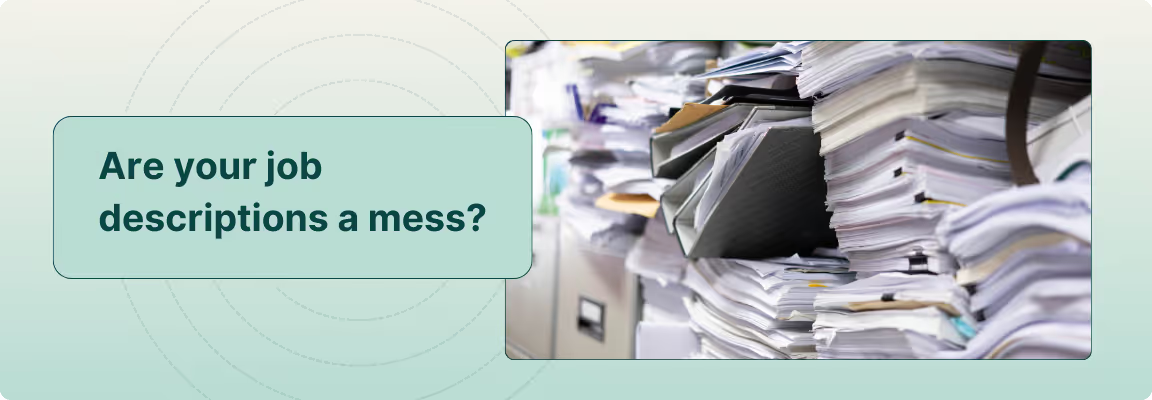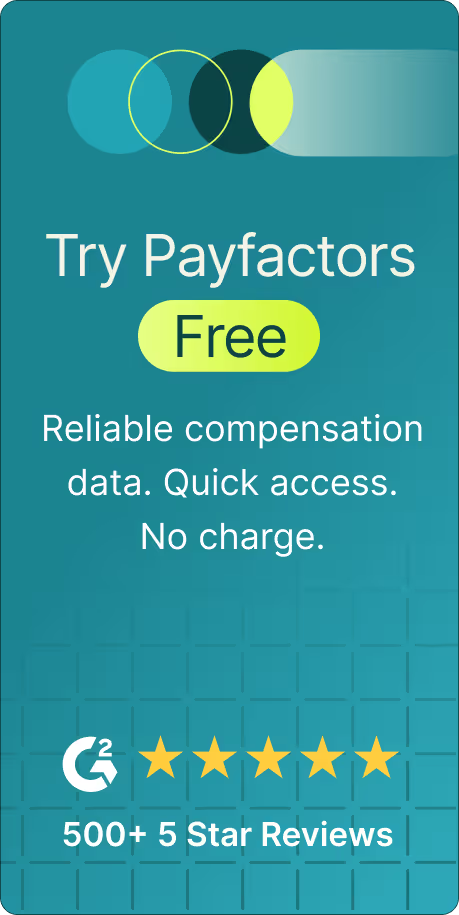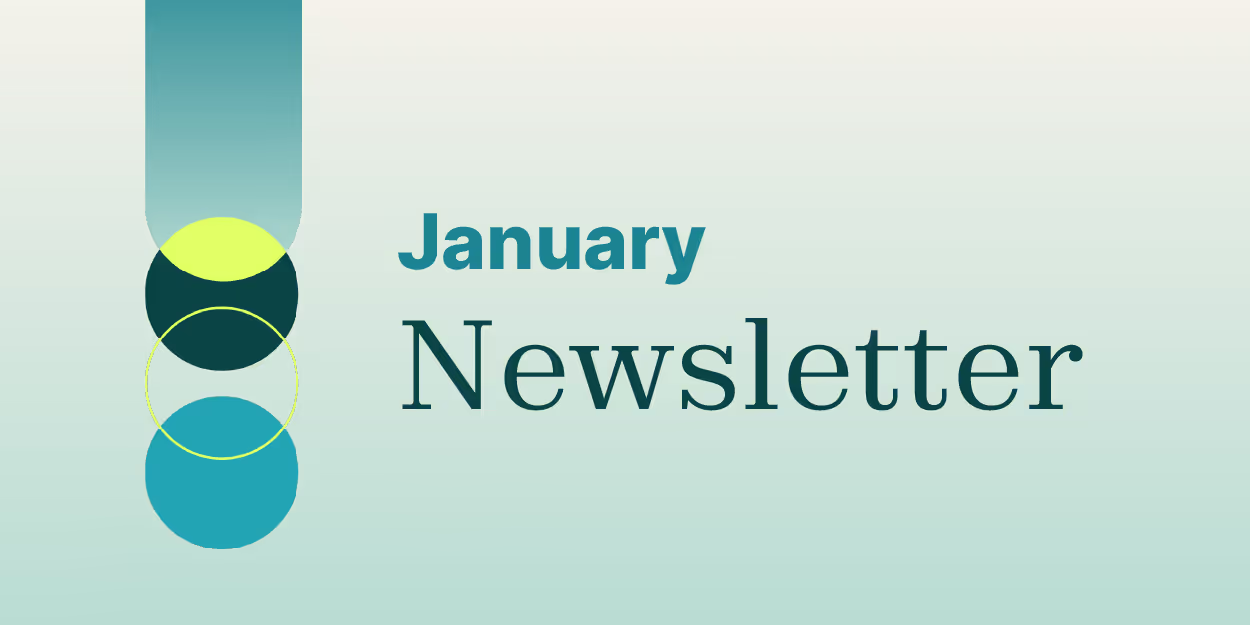While nearly three-quarters of HR practitioners are warming up to artificial intelligence, the verdict from C-suite tells a different story.
A recent Gartner survey of CEOs ranked HR leaders dead last in AI savviness. Ouch.
With this executive attention, you need more than just enthusiasm. You need a roadmap for AI adoption.
If you don't use AI regularly, this starter pack is for you. Even if you use it daily, you'll find something here. We'll cover everything from the risks of ChatGPT to AI's practical use cases in compensation.
Let’s dive in.
ChatGPT-ing jobs? Tread carefully.
Some HR practitioners are already using ChatGPT for tasks like writing job descriptions.
If you’re only looking at the lowest-hanging fruit, you might be fine with free AI tools.
But remember that job descriptions are the bedrock of your comp plans. While you may speed up this task with ChatGPT, you can't sacrifice quality.
When you benchmark jobs against poorly written, incomplete, or misleading descriptions, you’ll end up with comp structures erected on a crumbling foundation.
Unlike purpose-built AI tools that include your internal jobs, ChatGPT only offers generic job summaries that may not align with your roles and comp structures.
What about using ChatGPT for more advanced compensation activities like market pricing?
Say you’re looking up the salary range for a graphic designer in Austin, TX. You query ChatGPT, and it spits out a reply.
The problem?
ChatGPT’s responses will sound plausible even when they’re utterly wrong. Using it for market pricing can sabotage your comp structures. Without validation you might widen pay inequities or price yourself out of talent markets.
.avif)
Additionally, any information you enter in ChatGPT might be available for public consumption.
Media outlets recently reported an alarming story. OpenAI (the company behind ChatGPT) allowed users to share chats that were indexed by Google.
While users had to opt in, it's unclear whether they knew their conversations would be searchable. Within hours, OpenAI disabled this feature, calling it an “experiment.”
We don’t know when OpenAI will run another “experiment” like this, but it should give us pause. As a rule, you should only publish information in ChatGPT or other AI tools you’d also post to social media.
If it doesn’t belong on LinkedIn, it doesn’t belong on ChatGPT.
This is where building out a proper AI toolkit comes in — not just for avoiding the above risks but also to ensure it solves a real need.
AI use cases
Many comp professionals have begun experimenting with AI. If you’ve used it to draft a job description, congratulations on being part of the revolution.
This may feel like a small step, but tasks like writing job descriptions are the whole point of artificial intelligence. It should handle routine busywork, so you can focus your energies elsewhere.
Below are AI's most common use cases in compensation today.
Job descriptions
Are you sick of us mentioning job descriptions? There’s a reason why we keep bringing it up.
It’s low risk. It’s easy. And we’ve yet to encounter a comp pro yearning to write them.
While ChatGPT and other LLMs (large language models) can produce job descriptions, we’ve already mentioned the challenges. So what are your options?
It's best practice to use job description generators in comp management software that include incumbents. This improves accuracy and preserves your comp structures.
Job description generators also allow HR to track changes and collaborate on drafts. If you’re using a free AI tool for job descriptions, you won’t have the same oversight when your hiring manager accidentally decides a role requires a master’s degree.
Another benefit: certain tools allow you to manage job descriptions and price jobs all on the same platform.

Job match suggestions
Making survey matches is a hassle. Thankfully, AI is especially good at identifying semantic matches.
Instead of dealing with changing job codes and making participation matches manually, you can rely on an algorithm to do the heavy lifting.
How does it work?
Al sorts through thousands of jobs through natural language processing, analyzing keywords and picking up contextual clues. With automated match suggestions, an algorithm identifies similarities between your incumbent roles and participation matches.
It takes comp experts six minutes to correct one survey mismatch manually — AI cuts it down to seconds.
Market pricing
Top survey providers boast about the size of their datasets. While it’s true the best surveys have thousands of participants and millions of priced jobs, their data is still limited.
AI market data isn’t.
Algorithms can price any job. With a large enough dataset as training material, AI benchmarks jobs according to the differentials you select, such as industry and location. The tech is already advanced enough to challenge traditional job pricing methods.
AI for job pricing
HR practitioners are increasingly turning to AI for market pricing, but many are making a critical and unfortunate mistake.
They’re using free tools like ChatGPT or Google’s AI snippets, which pulls salary data from sites like Reddit. Yes, Reddit. Not exactly the gold standard for compensation data.
Purpose-built AI job pricing tools are a completely different story. The best use millions of data points from HR-reported salary sources to deliver precise job pricing when traditional salary sources fall short.
Say you’re a manufacturer trying to price the role of Digital Identity Manager. Traditional market data gives you a handful of matches, but they’re mostly in IT and telecom. Matches by your industry and location are scarce.
Comp professionals typically triangulate data and come up with an approximate salary range. But “close enough” frankly isn’t enough. Overpayment balloons budgets, while underpayment poses retention risks.
AI solves these issues
Instead of struggling to find the relevant data, AI first identifies alternative jobs. Does an Identity and Access Manager II match your job description? Then it delivers a pinpoint pricing with the data cuts you select, such as location, industry, or company size.
When the right data isn’t available or doesn’t match, the algorithm adapts. Let’s look at some examples of how AI solves comp experts' thorniest pricing challenges.
Market pricing in low/no data markets
You’re pricing a Nurse Practitioner role in Blackwater, Missouri (Population: 160).
The problem? Blackwater doesn’t have any nurse practitioners. You’re the first.
Traditional market data doesn’t provide answers. So, what are your options? Use the national average salary for nurse practitioners and make your best guess? Throw a dart at some salary ranges?
With AI tools, you can easily price this role. Algorithms can identify nurse practitioner positions in similar geographies and offer strong benchmarks, even in markets with no relevant data points.
Eliminating match chasing
Comp professionals labor to find the closest match for their internal roles. They pore over survey workbooks to pluck out that 70 percent match between a Digital Identity Manager and an IAM II.
The perfect match is elusive for all but the most common jobs. Job matching is about confidence, not perfection, which is precisely what AI delivers.
With AI market pricing, you’re not chasing matches. Instead, you’re handed the best match with minimal effort.
Overcoming data dominance
Mega Corp Inc. floods your market with thousands of jobs across its huge network in your location. But you’re a mid-sized company with a few hundred employees.
Large organizations can overwhelm your market. AI weighs this data accordingly, ensuring that big employers don’t skew benchmarks.
If you’re going use AI for market pricing, the next step is choosing the right vendor. But these tools aren’t created equally, and selecting the best partner is more than just comparing features.
It means understanding how the technology works and the data it depends on.
Questions to ask your vendor
Companies must proceed with caution, pushing vendors for complete transparency about how AI is deployed and their planned roadmap.
Before introducing an AI solution, ask the following:
What problem does it solve?
Do you lack market data? Are you lingering on Indeed to find salary ranges? If so, AI market pricing might make sense.
On the other hand, if making survey participation matches drains hours from your day, automated match suggestions might be the way to go.
AI must be more than flashy tech. It needs to solve actual problems.

What are the model’s training materials?
Yes, we keep saying it, but ChatGPT makes stuff up. Some comp vendors’ AI products rely on ChatGPT as the backbone of their “system.” This is a problem.
ChatGPT is hallucinating more. One theory is that the more reasoning the model attempts, the greater its chances of providing incorrect responses.
The bottom line? You need to ask vendors about their model's training materials.
How will you measure performance?
What’s an acceptable standard for accuracy? AI tools should cut down on your workload, not leave you redoing tasks.
If you’re using AI to make job match suggestions, how often are you accepting them? 50 percent of the time? 80 percent?
Decide on a reasonable standard for evaluating performance and make sure your solution delivers.
Does the model learn from its mistakes?
Without a learning loop, AI tools will keep making the same errors or producing irrelevant results.
The most valuable models are those that accept feedback and course correct when they miss the mark.
By asking these questions now, you’re not just selecting a tool — you’re choosing a partner. The decisions you make in vendor selection today will determine whether you’re leading the AI charge at your organization or scrambling to catch up later.
Early AI adopters will reap the rewards
AI isn’t coming in compensation — it’s here. Whether you’re testing the waters with job descriptions or ready to jump in with automated market pricing, the most important thing is to get started.
You can begin small. Some vendors (ahem) will even let you price a job using an AI tool for free. Your willingness to experiment now sets you up for later wins.
The question isn’t whether AI will change compensation. It will. It also isn’t whether your job will change. Also, yes. Instead, the real question is how you’ll prepare. Are you ready to advance your compensation program with artificial intelligence? Or will you wait until leadership asks why you’ve waited so long?
Ready to get going? Take a peek at our webinar: "How AI is reshaping pay decisions."





.avif)
